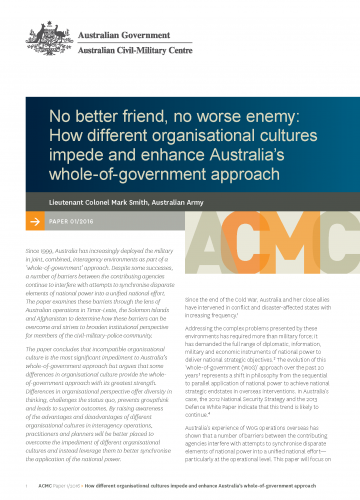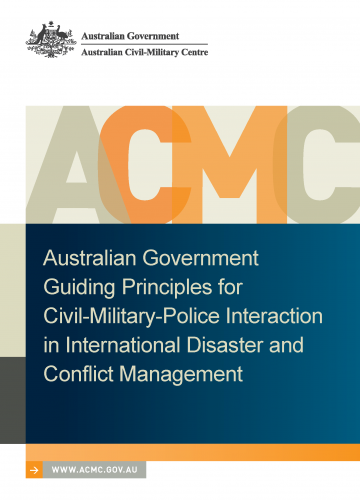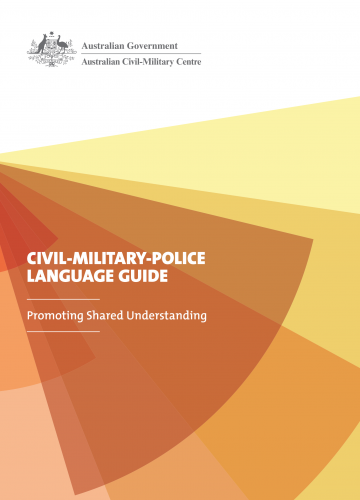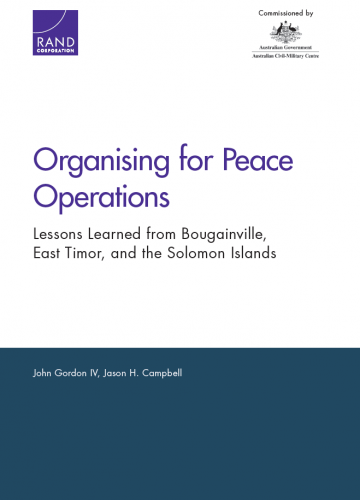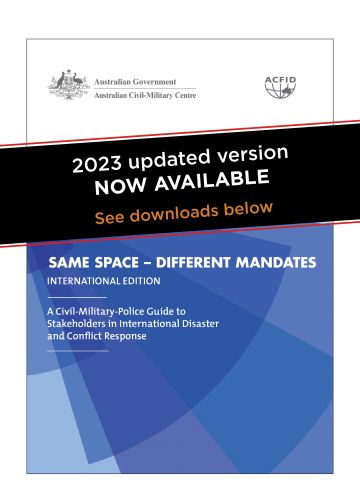Since 1999, Australia has increasingly deployed the military in joint, combined, interagency environments as part of a ‘whole-of-government’ approach. Despite some successes, a number of barriers between the contributing agencies continue to interfere with attempts to synchronise disparate elements of national power into a unified national effort. The paper examines these barriers through the lens of Australian operations in Timor-Leste, the Solomon Islands and Afghanistan to determine how these barriers can be overcome and strives to broaden institutional perspective for members of the civil-military-police community.
The paper concludes that incompatible organisational culture is the most significant impediment to Australia’s whole-of-government approach but argues that some differences in organisational culture provide the whole-of-government approach with its greatest strength. Differences in organisational perspective offer diversity in thinking, challenges the status quo, prevents groupthink and leads to superior outcomes. By raising awareness of the advantages and disadvantages of different organisational cultures in interagency operations, practitioners and planners will be better placed to overcome the impediment of different organisational cultures and instead leverage them to better synchronise the application of the national power.


